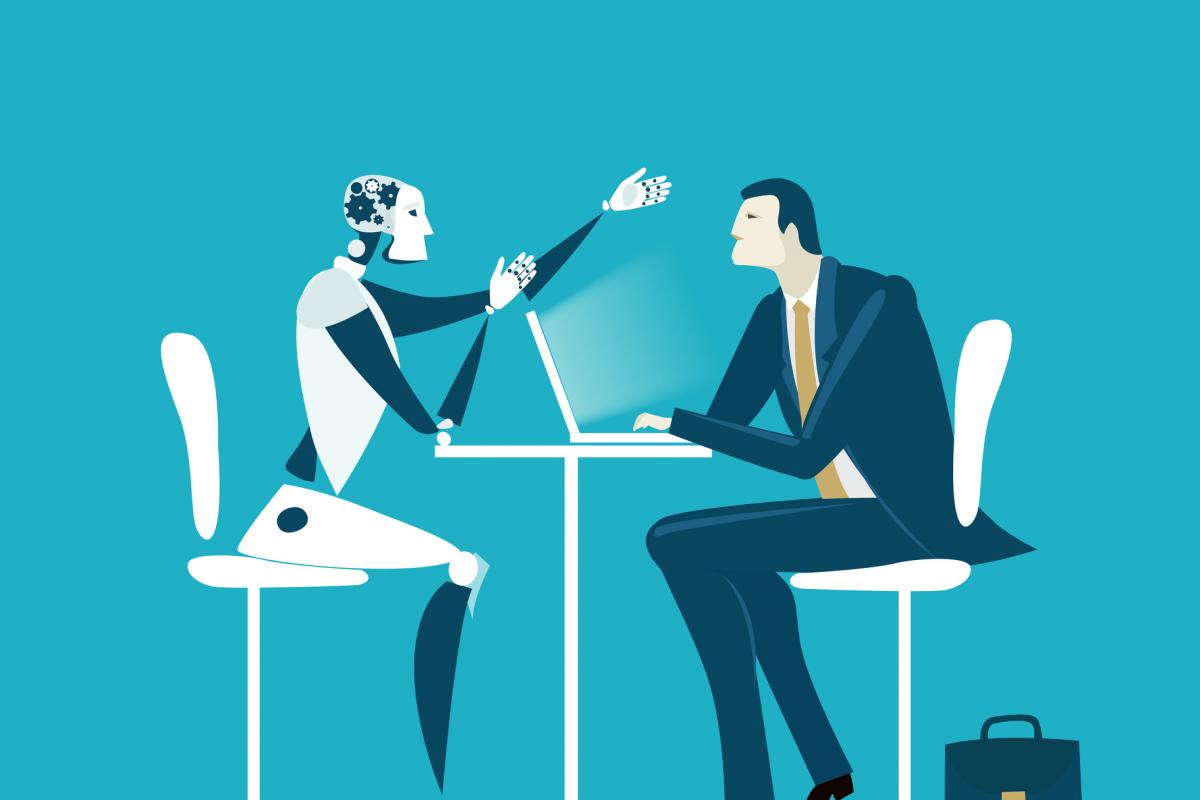Artificial intelligence’s impact on HR
- HRM Asia Newsroom
- Topics: Australia, Features, HR Technology, Talent Management

The legal compliance team at JPMorgan Chase & Co wait anxiously to see if their new gadget will achieve what they think it can. A machine is reviewing a year’s worth of legal contracts that traditionally would require the team to put in some 360,000 professional hours.
In little over two seconds, the information is delivered. It wasn’t a year, a month, a week or even a whole day. In just 2.85 seconds, an algorithm replicated the efforts of hundreds of contract lawyers and clerks.
The algorithms were given the contracts prior to correction and then the same contracts after they were reviewed and amended. After reviewing thousands, the algorithm learned what was different and what changes were needed. The algorithm kept developing until it was able to produce the same results as if lawyers had reviewed and corrected the document themselves – no law degree required.
Not only is this story astounding and exciting, but it also marks a significant shift in the role of artificial intelligence in our daily lives and the multiple occupations surrounding it. From voice-activated home appliances, self-driven cars, to a trip to the grocery store with no staff member in sight – we have finally reached the age of AI.
AI’s introduction into the employment market has provided human resources management with both challenges and opportunities.
While once AI came with an underlying fear of a robot apocalypse – destroying jobs, industries and everything else in its path – organisations across the private and public sector are now taking the initiative to not only embrace the technology, but to also create AI powered solutions.
Say hello to the freelance market
As part of these powered solutions, the workplace as we know it is changing.
Yes, some jobs are disappearing, but there are plenty of new and exciting roles evolving too. Not only are job roles changing, but the traditional 9-5 employee could also soon cease to exist. The rise of a ‘gig economy’ has established a growing number of workers abandoning traditional employment for self-employment or casual work.
This new market means changes are occurring in talent identification and hiring, with the supply and demand of labour constantly changing. In relation to demand, the rise of AI has played an interesting role in how an employee markets and differentiates themselves – seeking skills that robots cannot learn.
A new workplace currency
Emotional intelligence has become a new currency of its own, with those who possess it seen as an emerging elite, the untouchable.
Humans have always excelled not necessarily in calculation but in context, in the space between the processes, in human interaction. Along with emotional intelligence, the emergence of soft skills will become prevalent among human employees. Employers and HR managers will become increasingly reliant on employees who have critical thinking and the capability to deal with complex problems.
According to research by Deloitte Australia, the number of soft skill-intensive jobs will grow 2.5 times faster than other jobs. Furthermore, the research predicts that soft skill-intensive jobs will make up almost two-thirds of the workforce by 2030.
Adapting to the latest revolution
There’s much to consider and answer when it comes to how humans can remain relevant in the Artificial Intelligence Revolution, a world where the algorithms are swallowing jobs and industries.
It’s clear that a much-needed conversation is needed with some of Australia’s leading human resources executives to determine what the current and future opportunities are for the industry and the challenges we may face in the wider HR sector moving forward.
I was fortunate enough to be part of such a conversation, when the Org Dev Institute (ODi) hosted a roundtable with HR leaders, which unearthed some interesting insights and observations. I look forward to reading the resulting whitepaper in the near future.
This forward thinking is vital not only to ensure the longevity of the HR industry, but also its prosperity.






